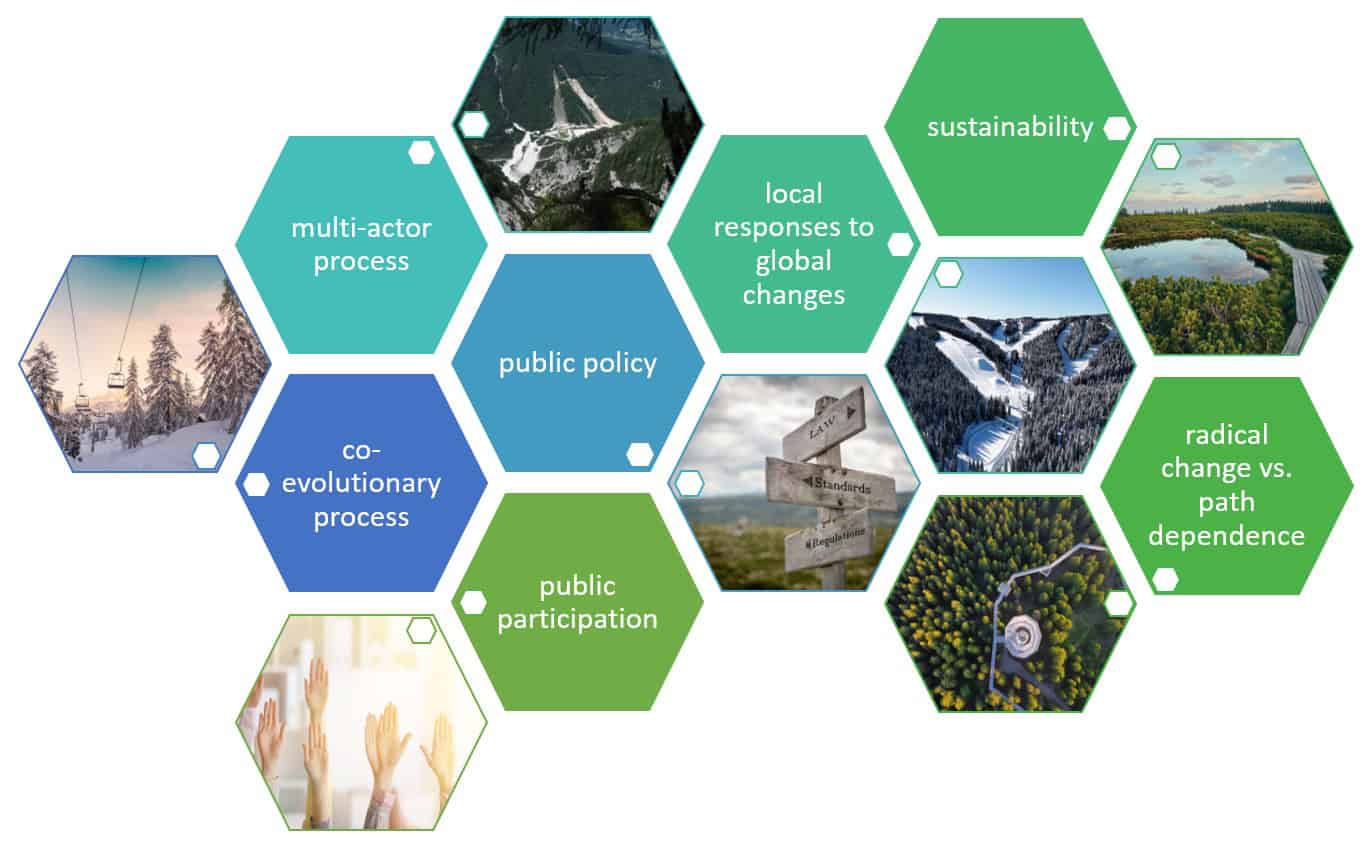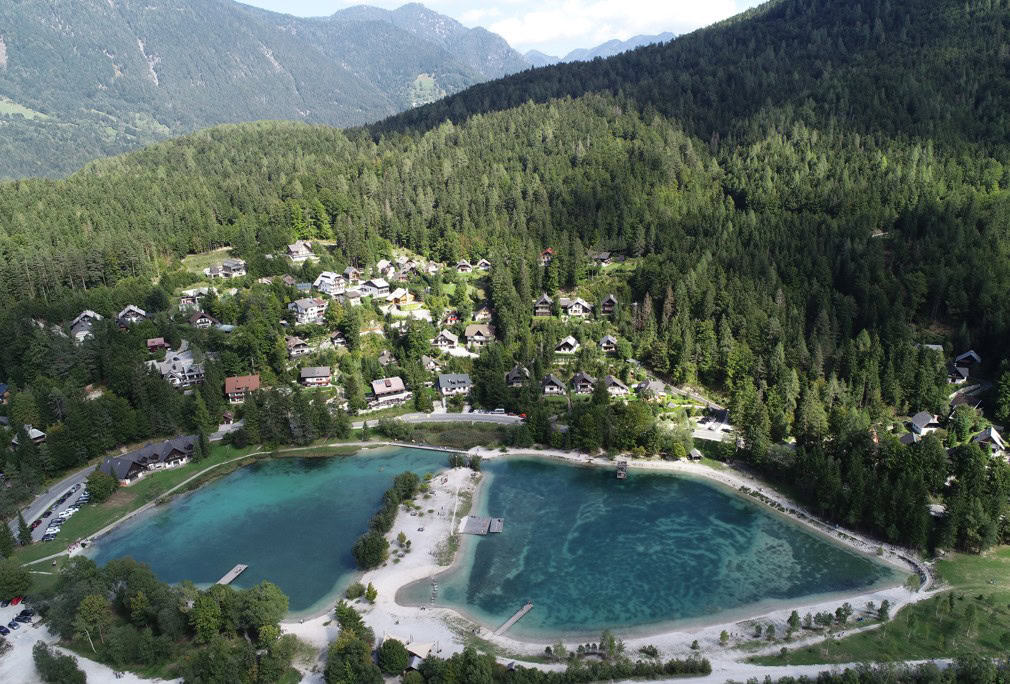A sustainable transition of mountain resorts is a transformative process tackling global challenges like climate change, biodiversity loss, inequality and resource depletion. The goal is to provide environmentally friendly, inclusive and economically viable environments and communities that will be less dependent on ski tourism.
Sustainable transitions are co-evolutionary processes that involve multifaceted changes.
TranStat project is not limited to tackling merely the challenges faced by ski tourism. It addresses the challenges of mountain resorts in their entirety, including social, environmental and economic domains. Sustainable transitions are multi-actor processes. They require the active involvement of a range of actors, including academia, politics, industry and civil society. This makes sustainable transitions political processes, which can be highly contested.
The TranStat project will acknowledge possible conflicts and support decision-makers and stakeholders in understanding the necessity of sustainable transition. While local communities and stakeholders are important, public policy must play a crucial role in sustainable transitions through environmental regulations, standards, taxes, subsidies, and innovation policies.
To achieve this, future TranStat activities will prioritise engaging decision-makers from different governance levels to develop immediate solutions to pressing issues in collaborating mountain resorts, while also laying the groundwork for long-term policy changes that will support sustainable transitions in the Alpine area.
Author: Maruša Goluža, ZRC SAZU




